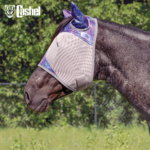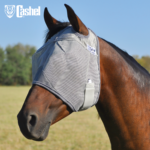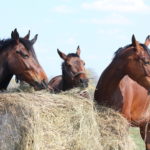September 27, 2010?Dr. Kristina Hiney, PhD, Omega Fields?? Equine Nutrition Advisor, has prepared a series of Seasonal Tips which can be of great help to the horse owner transitioning their horses from one season to another.
Omega Fields?? recognizes that your horse’s health is always of paramount importance but the many things to consider and keep in mind can make this task overwhelming. To simplify, we?ve asked Dr. Hiney to split up annual health considerations into the four seasons.
The following are the things you should do during this summer-to-fall transition:
- Check the body condition score of all your horses, especially the older ones. Extra pounds will aid them in getting through the winter if you live in a cold environment.
- Have your horses teeth checked. Again for the older horses, it is important that their teeth are in good shape. Eating forage is a great way to produce heat in the horse’s gut. Their teeth need to be in proper form to digest this feed.
- Pull out blankets and inspect for wear. Now is the time to get repairs done, not when the arctic wind is blowing!
- Check that all wiring and plumbing to the barn is in good repair.
- Check that all bucket and water tank heaters are working. While quite the timesavers, these devices can also cause get headaches if they don’t function properly. If they are sending an electrical current into the water from a short, your horse will not drink. This can quickly lead to dehydration as horses are normally eating drier feed stuffs in the winter.
- Make sure you either have a reliable delivery source of bedding, or choose to get a larger stockpile for winter. This is not the season to run short!
- Deworm with a boticide after the first hard frost. The adult insect form will be dead, and there should not be any further infestation for your horse from bots






